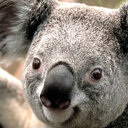Hemorrhagic shock-induced bacterial translocation is reduced by xanthine oxidase inhibition or inactivation.
Nøgleord
Abstrakt
Experiments were performed to determine whether bacterial translocation (BT) after hemorrhagic shock is due to a reperfusion injury mediated by xanthine oxidase-derived oxidants. Rats were subjected to 30 minutes of shock (30 mm Hg) followed by reinfusion of shed blood. Twenty-four hours after hemorrhage and reinfusion, the mesenteric lymph node, liver, and spleen were harvested from each animal for bacterial culture, and the ileum and cecum were examined histologically. Sham-shocked (control) rats were instrumented, but blood was not withdrawn. The incidence of BT was higher in the shocked rats (61%) than in the sham-shocked animals (7%) (p less than 0.01). Allopurinol (50 mg/kg, administered orally), a competitive inhibitor of xanthine oxidase, reduced the incidence of shock-induced BT to 14% (p = 0.02). Similarly, rats fed a tungsten-supplemented molybdenum-free diet, which inactivates xanthine oxidase, reduced shock-induced BT to 10% (p = 0.02). The histologic damage cause by hemorrhagic shock was prevented by blocking xanthine oxidase activity. Thus hemorrhagic shock-induced bacterial translocation from the gut appears to be mediated by oxidants generated by activation of the xanthine oxidase system.


